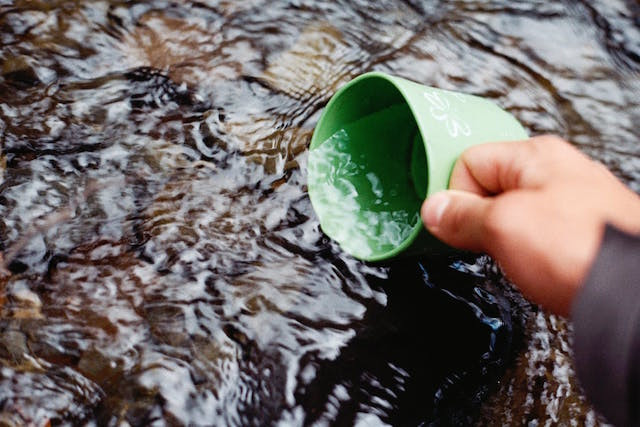While, part of the story looked at the January flooding in Remich, in fact we devised the idea in November to examine the impact of climate change on Luxembourg. Water quickly became the focus because its effective management and supply are critical for both our economy and survival. But also, because we cannot ignore the fact that water scarcity is going to be at the heart of major conflicts in future. By 2035, global water consumption is predicted to increase by 85%, driven by agricultural expansion, energy demand and fracking.
Combined with climate change-related scarcity of clean water and man-made pollution, it does not bode well for the world, particularly the less developed regions, which tend to be the most vulnerable. Besides loss of biodiversity and the horrific impact of drought on people and livelihoods, water scarcity increases the risk of conflict. Indeed, water shortages are already exacerbating civil unrest in Syria and Yemen, according to the Atlantic Council.
Awareness-raising
Luxembourg is in a position where it rains more than we would like. But not necessarily at the times we need it. A clear trend is for drier summers and wetter winters, something which will not change in our lifetimes, even if we reduce greenhouse gas emissions. That means we need to better manage the water we have to be sustainable in the next 40 years when the population is predicted to hit 1 million. Most of the time there is enough water for our often-excessive use, so we don’t think twice about letting the tap run until the water is cold or the shower until it is piping hot.
Awareness-raising among the population about reducing water waste is something the government hopes to tackle with a campaign in the coming months. It will not be easy to change mindsets, particularly during Luxembourg’s rainy season when it seems we have nothing but water.
It will require more than simply cutting back on direct water use and installing more water efficient technology. Large volumes of water are used to manufacture the clothes we wear and the food we eat. Far-reaching water saving measures will also require major lifestyle adjustments.
And, it’s not just consumers who need to change. Certain industry sectors consume vast amounts of water and we need investment, expertise and a willingness to research and develop sustainable alternative methods.
The real cost of water
I wouldn’t advocate increasing water rates for end users. But, it is worth bearing in mind that the cost of supplying and cleaning water is considerable. In addition to paying for new infrastructure and maintenance of pipes and treatment plants, when we get it wrong, it is also costly. Environment minister Carole Dieschbourg explained that since November 2013 Luxembourg has paid over €4m in fines to the European Commission because six water treatment plants fell below minimum required standards.
While some may argue wealthy Luxembourg can easily pick up the tab, this attitude is cavalier, if not reckless; because when our water supply dries up, so too will the country’s wealth.
Personally, I would prefer to see this money channelled into projects to help combat drought in other countries. Because another consideration in this scenario is that water scarcity in drier climates will force millions of people out of their home--for food and work and to flee conflict. It will create migration on a scale we have never seen before and more likely than not, some of these displaced people will come to Luxembourg. Either we pay now or we pay later.
Follow Jess Bauldry on Twitter. Want to get Delano’s daily newsletter? Sign up here. Alternatively, check out the latest edition of our magazine.
